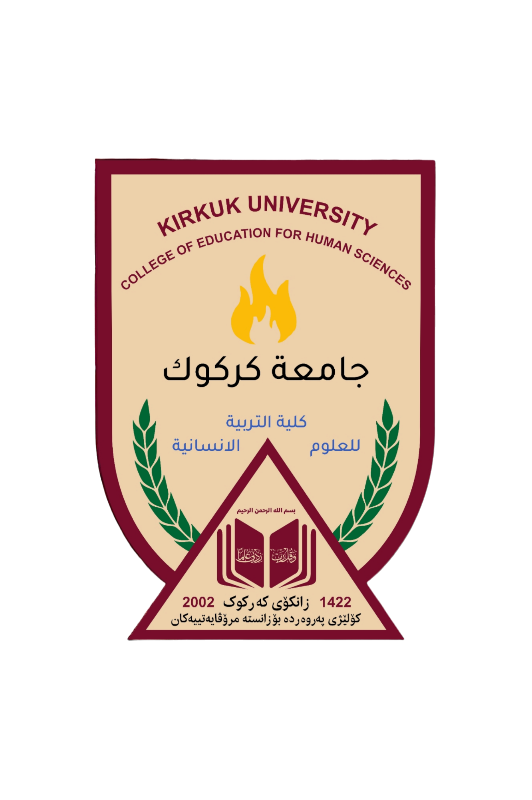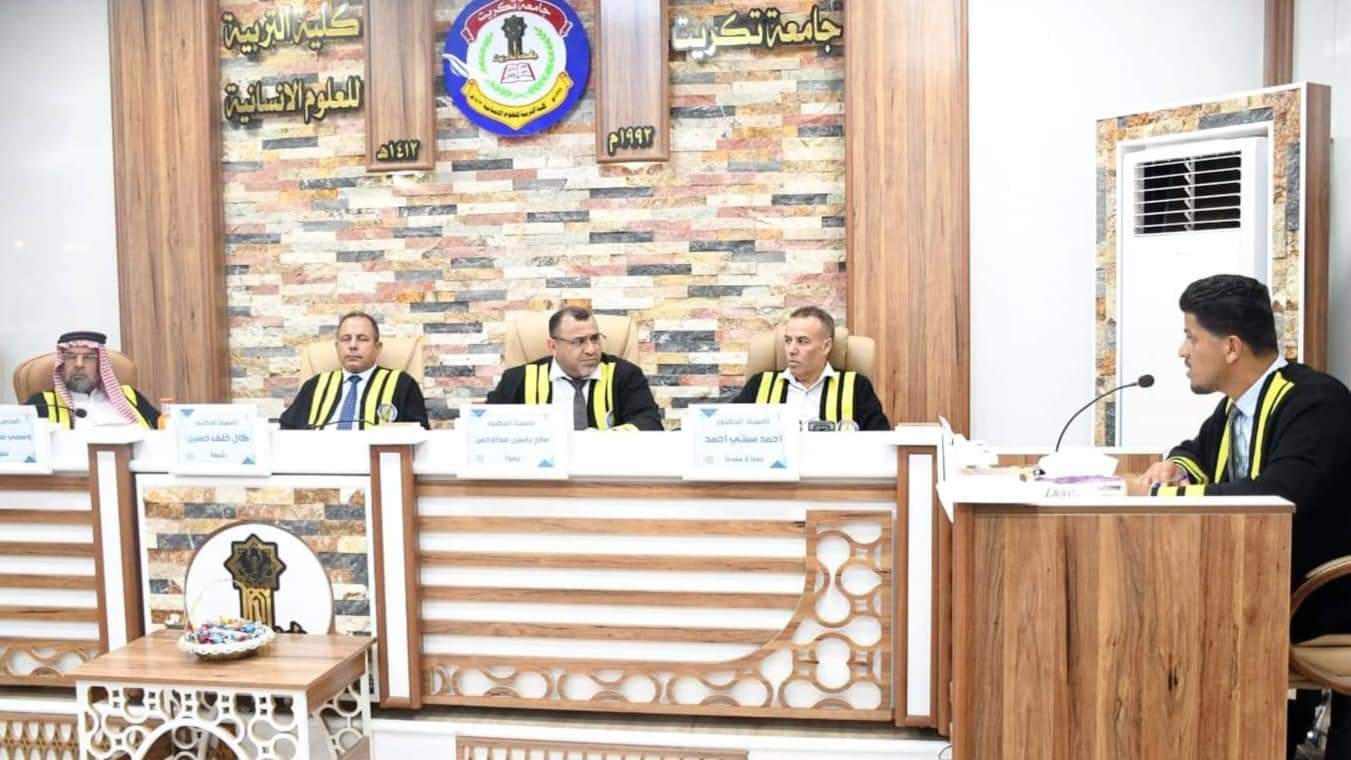The lecturer in the Department of Quranic Sciences and Islamic Education, Assistant Professor Dr. Saleh Yassin Abdul Rahman, participated in the discussion of the master's thesis entitled (Fiqh rulings in the book Bulugh al-Maram min Adillah al-Ahkam by Al-Hafiz Ibn Hajar Al-Asqalani (852 AH) from the book Bab al-Mawaqit to Bab Sitra al-Musalli - a comparative fiqh study) for the student Omar Hussein Nasser and in the hall of the College of Education for Humanities at Tikrit University on 8-22-2024.
The aim of the current research is to study the fiqh rulings in the book Bulugh al-Maram min Adillah al-Ahkam, and this appeared through the principles he relied on and the rules he employed in his writings.
Ibn Hajar proceeded in composing his book (Bulugh al-Maram min Adillah al-Ahkam) benefiting from his travels to his sheikhs, his duties of dictation, or storing scientific books, so he did not skimp on anything in his composition, which made it a true scientific heritage encyclopedia.
In all his writings, he did not state his doctrine, but studies have shown that he was Shafi'i in doctrine, but he was not fanatical about his doctrine, so we find him sometimes agreeing with the majority and other times disagreeing with them, and by the majority he meant what was from other doctrines that agreed with the Shafi'is.
Ibn Hajar made an effort to choose some hadith terms in his book (Bulugh al-Maram) that differ from the scholars of hadith, so he mentioned the seven narrators, then the six, then the five, then the four, then the three.
The book has great importance and distinction among the books of hadith, as it includes a large number of hadiths, the number of which reached (1596) hadiths. Ibn Hajar adhered to the principles of his school of thought and preferred some issues. The preferred opinion in his school of thought does not mean infallibility as long as the weaker opinion has been shown to him by what strengthens it from a fundamental evidence or a jurisprudential rule.
It is not possible to reach Ibn Hajar's opinion explicitly on an issue through his book Bulugh al-Maram.
The study reached the most important results:
1 - The jurists went to the view that the last time of Dhuhr is the shadow of a person like him and that the last time of Asr is the yellowing of the sun and the last time of Maghrib is the disappearance of twilight and the time of Isha prayer extends to midnight.
2 - It is desirable to cool down with Dhuhr prayer in intense heat until the time cools down and the glow breaks, and this is agreed upon by the jurists.
3 - Al-Hafiz Ibn Hajar went to the view that whoever catches a rak'ah of Fajr prayer before sunrise or Asr prayer before sunset has caught the prayer. Obligatory or voluntary prayer for a reason.
4 - Imam Ibn Hajar went to the dislike of praying after Asr and Fajr unless it was.
The jurists agreed on the dislike of moving after dawn and before the morning prayer, and they made an exception for the two rak'ahs of dawn
5- There is no disagreement among the jurists on hastening all prayers, which is better, unless there is a strong opposition, such as clouds and heat in the noon prayer, which is what Ibn Hajar, may God have mercy on him, went to
6- Characteristics of Islam and its apparent rituals The jurists, may God have mercy on them, agreed on the legitimacy of the call to prayer and the call to prayer, and that they are from
The discussion committee was composed of the following teaching gentlemen:
Prof. Dr. Talal Khalaf Hussein, Chairman
Assistant Professor Dr. Saleh Yassin Abdulrahman, Member
Assistant Professor Dr. Wasmi Muhammad Ahmad, Member
Prof. Dr. Ahmed Sabti Ahmad, Member and Supervisor
 كلية التربية للعلوم الانسانية – جامعة كركوك
كلية التربية للعلوم الانسانية – جامعة كركوك  Arabic
Arabic  English
English 

